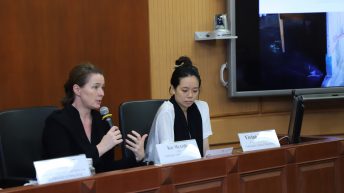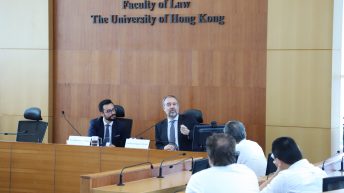Date:24-26Feb 2021
Belt and Road Initiative in Africa Conference
(The conference was jointly hosted by the Centre for Comparative Public Law at the University of Hong Kong and the Centre for Asia-Pacific Initiatives at the University of Victoria)
24th February (Wednesday) to 26th February (Friday) 2021
Zoom Webinar
In 2013, President Xi Jinping launched the Belt and Road Initiative (BRI), which aimed to integrate China’s global strategies of promoting infrastructure-led development, trade, finance, policy, and people-to-people connectivity. Boosted by China’s global initiatives such as the BRI, the country has become the fastest-growing investor in Africa. From 2003 to 2018, the annual flow of China’s foreign direct investment (FDI) in Africa surged from $75 million to $5.4 billion, and the stock value of Chinese FDI increased from $491 million to $46 billion. To what extent has the BRI promoted sustainable development in Africa by dealing with the tremendous differences in financial and legal systems in China and African countries? The COVID-19 pandemic has posed a variety of new challenges, such as the decline of commodity prices and economic downturns. How have the BRI and the pandemic impacted the debt profile of resource-producing countries in Africa? This conference brings together leading scholars, policymakers, and practitioners from the fields of law, political economy, and sociology to explore these issues. Speakers will address them from the perspectives of debt sustainability, transparent governance, and dispute resolution.
Panel 1: Debt Sustainability (24th February 2021 09:00 AM – 11:00 AM HKT)
Welcome Remarks: Prof. Victor V. Ramraj (Director, Centre for Asia Pacific Initiatives, University of Victoria, Canada)
Prof. Po Jen Yap (Director, Centre for Comparative and Public Law, HKU) Keynote Address: Prof. Deborah Brautigam (Director, China-Africa Research Initiative, John Hopkins University)
• Prof. Ching Kwan Lee (The Hong Kong University of Science and Technology)
• Prof. Deborah Brautigam (Johns Hopkins University)
• Prof. Stephen Harder (New York University Shanghai)
• Prof. Gu Bin (Beijing Foreign Studies University)




